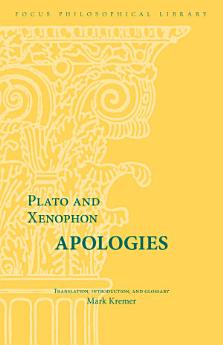關於本電子書
These dialogues underscore the limitations of democratic relativism and emphasize the nature of philosophy or the free mind. Plato’s Apology of Socrates is both poetry and an act of reformation, justifying the life of philosophy, challenging the authority of the pagan gods and heroes, and introducing Socrates as a heroic and even divine figure. In contrast, Xenophon’s Socrates is not dialectical and otherworldly, but makes a different appeal for philosophy. From Xenophon emerges the heroic tradition of Plutarch with its reflections on the virtues and vices of great historical men.
Focus Philosophical Library translations are close to and are non-interpretative of the original text, with the notes and a glossary intending to provide the reader with some sense of the terms and the concepts as they were understood by Plato and Xenophon’s immediate audience.







